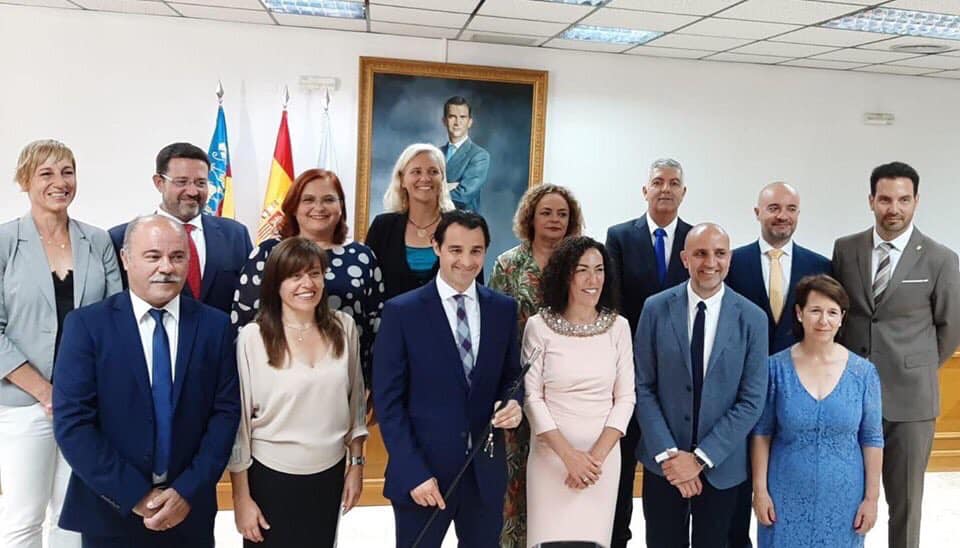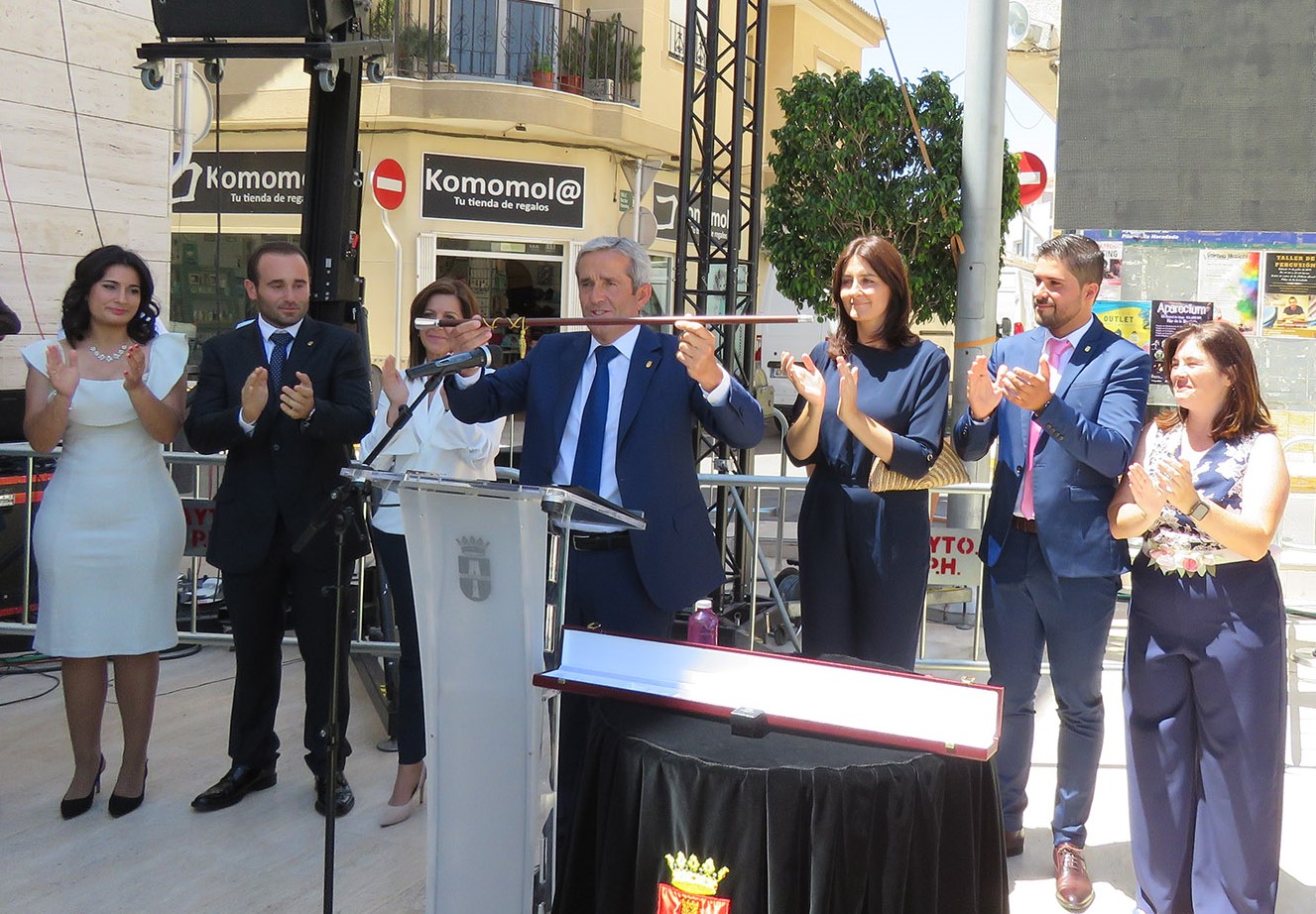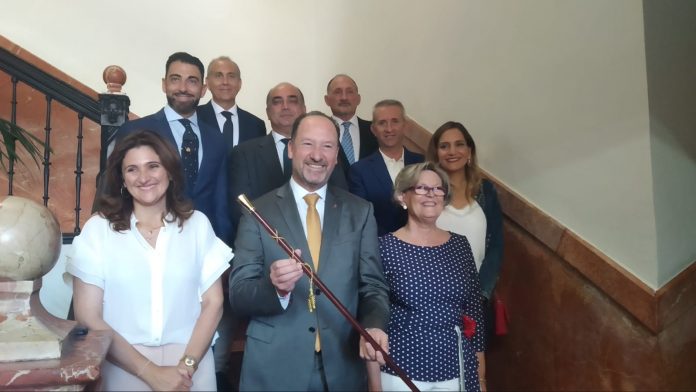- Bascuñana remains as head of government in Orihuela while Eduardo Dolón regains power in Torrevieja.
The leader of the Partido Popular, Emilio Bascuñana, has once again been declared mayor of Orihuela, at the start of the current legislature, albeit with just 9 of the 25 available council seats, the same number as claimed by PSOE leader Carolina Gracia, who has the support of the three Cambiemos councillors. There are a further two seats that were won by Vox, although it is the five held by Ciudadanos (Cs), that hold the balance of power.
As such Bascuñana enters the current session as the leader of a minority government.
In his inaugural address, the mayor said that, after four years, in which he and his councillors have gained an awful lot of experience, they face this new challenge together with “renewed enthusiasm and with the commitment to continue governing with transparency”.
He has asked the remaining parties and their councillors, “with humility, to help and support me in order to live up to what Orihuela needs with dignity, loyalty and trust, all through honest work.”
Bascuñana told the party leaders that “the interests of Orihuela should be their priority.”
In the Torrevieja Municipal Chamber it was standing room only as Eduardo Dolón (PP) was re-elected to the office of mayor after an absence of 4 years.

With a vastly increased majority, and the rather unexpected support of the leader of Ciudadanos, Pilar Gómez Magán, Dolón took possession of the symbolic staff of office from the leader of the opposition, Andres Navarro, promising that his government team will work tirelessly to resolve the problems of the town and of the residents,” and not the other way around.” “We will not disappoint you,” he promised.
He extended a hand of friendship to the opposition, and assured them that he would always be honest in dealings with them.
In total the Vega Baja saw the mayor’s invested in a total of 27 it’s municipalities, with the Partido Popular (PP) regaining the leadership in many of the region’s most important towns including José María Pérez in Pilar de la Horadada, as well as in Almoradí, and Callosa de Segura where Manuel Martínez is close to signing a pact with the C’s.

Pilar de la Horadada
Another of the disputed municipalities is Benejúzar where Rosa García (Cs) and Miguel López (PSOE) seem about to agree a pact where each will be mayor for two years while in Daya Nueva, Teresa Martinez, of Ciudadanos, has reached an agreement with the PSOE which will give her an absolute majority.
The PSOE in San Fulgencio took to Facebook to officially announce that a formal agreement had been reached with the Ciudadanos to govern San Fulgencio and La Marina for the next four years, and where expats Samantha Hull and Darren Parmenter will both serve in the new government.

It’s been 16 years since the PSOE were last in power in San Miguel de Salinas, with new mayor Juan de Dios Fresneda, saying his councillors must hit the ground running.
In other medium-sized towns, the picture is much clearer. The PSOE retains their majority in Rojales with Antonio Pérez and José Luís Sáez will resume his duties as the mayor of Guardamar del Segura.
Ana Serna (PP) will remain in charge of the Albatera City Council, now with an absolute majority, as will Antonio Bernabéu in Cox. The municipalities of Benijófar, Bigastro and Formentera del Segura will also remain under PP control. And under control of the PSOE with absolute majorities are the towms of Rafal, Dolores, Jacarilla, Benferri, Algorfa and Los Montesinos where José M. Butrón Sánchez has been the mayor since 1990.





